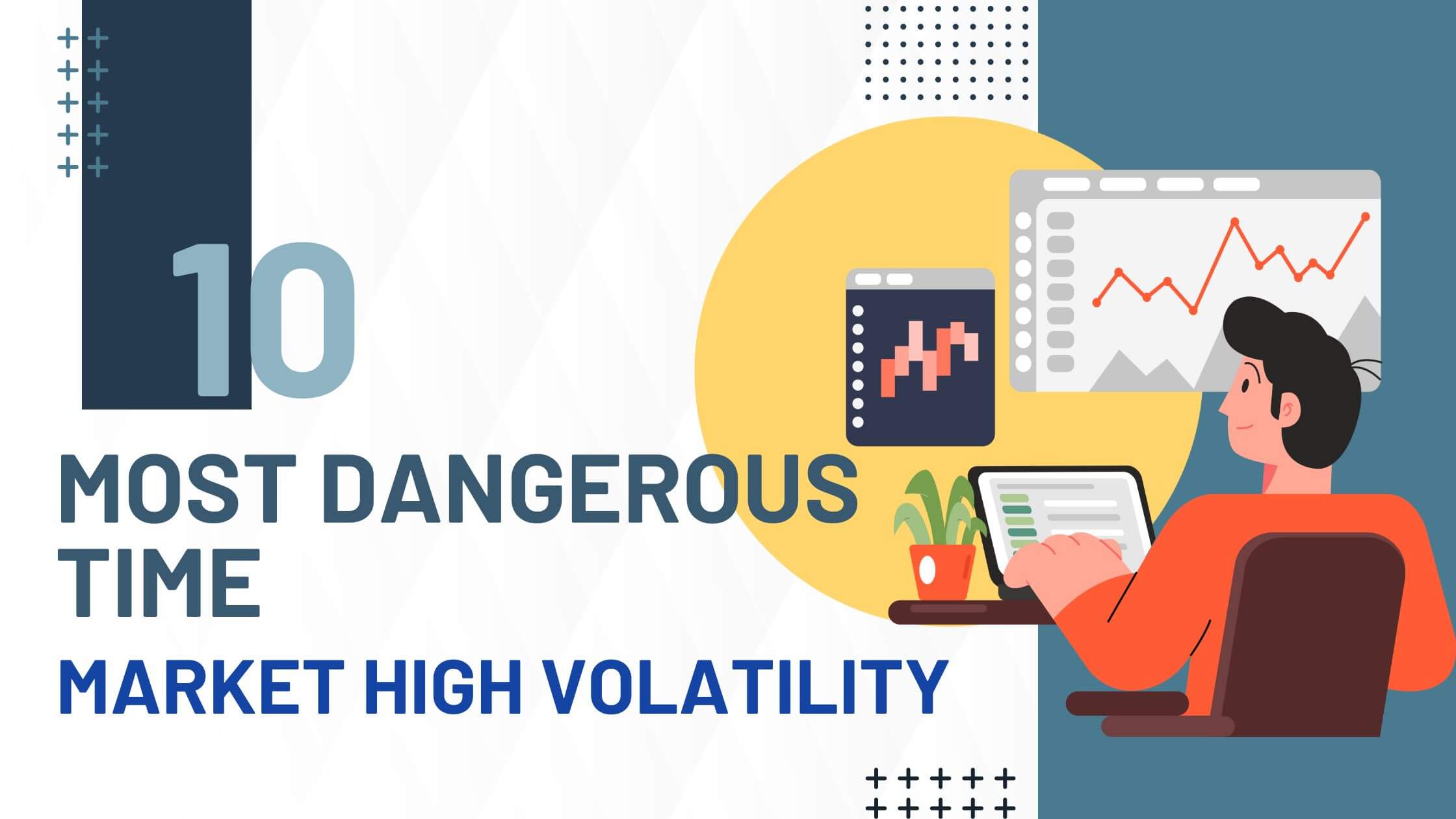
Market volatility refers to the fluctuations in the prices of securities or financial instruments. It is a measure of the degree of uncertainty or risk associated with the price of an asset over a specified time period. Market volatility can be caused by a variety of factors such as changes in interest rates, political events, economic data releases, or company-specific news.
Volatility can have both positive and negative effects on investors. On one hand, high volatility can create opportunities for short-term profits, but it can also lead to significant losses if investments are made at the wrong time. On the other hand, low volatility can be seen as a sign of a stable market, which can be attractive to long-term investors.
Market volatility and there is a lot of news flow
During periods of heightened market volatility, traders must exercise extreme caution and avoid taking on large risks. This is due to the fact that the market can experience sudden, drastic movements that can lead to substantial losses for those who are not ready. The forex market is frequently impacted by major economic and political events, which can result in heightened market volatility and unpredictability. In these scenarios, it is imperative to stay informed by closely monitoring news and economic updates and to be prepared for unexpected market shifts.
High levels of market volatility necessitate extra caution from traders in order to avoid big risks. The market can suddenly experience large fluctuations that can result in substantial losses for unprepared traders. The forex market is highly susceptible to the influence of major economic and political events, leading to increased market volatility and uncertainty. Thus, traders must be vigilant by regularly monitoring news and economic releases and be ready for sudden market movements.
Another danger is when the markets are overvalued or undervalued
A market that is considered to be overvalued can signal to traders that the market may be overpriced and that a correction is likely to occur in the near future. This correction could result in a decrease in market prices, causing potential losses for traders who have invested in the overpriced market.
However, when the market is undervalued, it may present a good opportunity for traders to buy assets as the prices are lower and there is potential for growth. This is because, in an undervalued market, there is a higher chance of prices increasing as market conditions improve, resulting in a potential increase in value for the trader’s investments.
When making investment decisions based on market valuations, it is important for traders to exercise caution and consider a range of factors. This includes monitoring economic data to understand the current economic conditions, taking note of market sentiment to gauge the overall market mood, and using technical analysis to identify trends and patterns in market data.
It is important to have a clear plan and stick to it
A well-structured and thought-out trading plan is a crucial tool for traders to make educated decisions and avoid impulsive actions that can result in losses. A comprehensive trading plan should encompass several key components, including a deep understanding of the market, a well-defined investment strategy, and a set of guidelines for managing risk. To create an effective trading plan, traders should have a clear idea of their investment goals and should be disciplined in adhering to the plan.
When creating a trading plan, traders should first take the time to study the market and gain a comprehensive understanding of market trends, key players, and other relevant information. This will help traders to identify potential opportunities and to make informed decisions.
The next step in creating a trading plan is to develop a well-defined investment strategy. This strategy should be based on a trader’s investment goals, risk tolerance, and other relevant factors. It should include a plan for entry and exit points, as well as a plan for managing risk.
One of the most important components of a trading plan is a set of rules for managing risk. Traders should have a clear understanding of the potential risks associated with their investment strategy and should develop a plan for managing those risks. This may involve setting stop-loss orders, using hedging strategies, or other risk management techniques.
It is also important to be patient and avoid making any rash decisions
Patience plays a vital role in forex trading as it enables traders to resist making impulsive decisions and stay focused on their investment goals. Traders should be patient in seeking out the right opportunities and not be swayed by short-term market fluctuations. Rather than acting out of fear or greed, which can lead to significant losses, they should wait for the best moment to make a trade.
In the fast-paced world of forex trading, having patience can be a significant advantage. It allows traders to take a step back, consider their options, and make informed decisions based on their investment strategy and goals. By avoiding impulsive trades, traders can mitigate the risk of losses and increase their chances of success.
Patience is an essential trait for traders who want to succeed in the forex market. Traders who are patient and take a strategic approach are more likely to make well-informed decisions and achieve their investment goals. Rather than jumping into trades impulsively, traders who are patient and disciplined are more likely to weather market volatility and emerge successful in the long run.
Finally, it is important to be aware of the risks
Forex trading is a complex and dynamic market that requires careful analysis and a clear understanding of the risks involved. Traders should be aware of the risks associated with leverage and should be cautious when using high levels of leverage. They should also be aware of the risks associated with currency pairs and should only invest in currencies that they are familiar with.
In conclusion, the most dangerous time to trade in the forex market is during times of high volatility, when the markets are overvalued or undervalued, and when traders are not prepared with a clear plan or are making impulsive decisions. Traders should be patient, disciplined, and aware of the risks involved in forex trading in order to achieve their investment goals and avoid significant financial losses.








